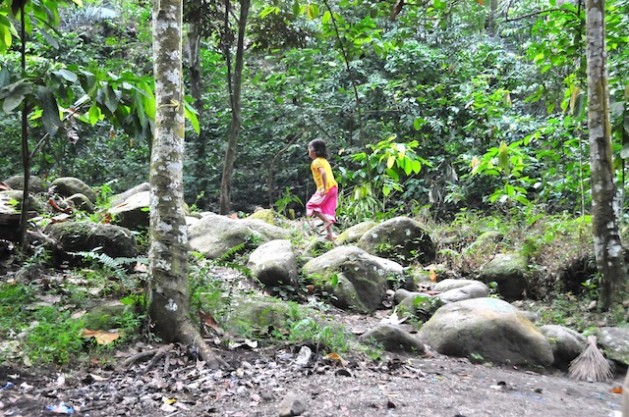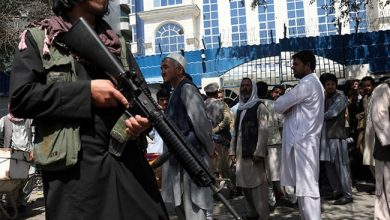We Indigenous Peoples are Rights-Holders, not Stakeholders — Global Issues


December 8 (IPS) – After four failed rainy seasons, the land of the Maasai has withered. The worst drought in 40 years was a destructive storm slowly unfolding in Africa’s Greater Horn, destroying livestock, communities, the Maasai way of life. Their livestock is their greatest source of wealth and nutrition, but with grazing lands shrinking due to the heat and dryness and their herds dwindling, the entire region is in peril.
In contrast, typhoons that make landfall in the Philippines bring intense rains and devastating winds. The Igorot communities on Luzon Island are at the forefront of these storms, and they find it difficult to maintain their way of life.
Super Typhoon Haiyan may have made its biggest impression when it made landfall in southern Luzon during the UN climate change talks in 2013, but in 2018 Luzon was directly hit by Super Typhoon Mangkhut next. Three months ago, Super Typhoon Noru devastated the same area.
As a Maasai from Kenya and an Igorot from the Philippines, we Indigenous Peoples wake up every day to different realities about the world. However, our peoples share a deep attachment to the territories of our ancestors and to the flora and fauna on which we depend to meet our spiritual, cultural needs. and physical.
The Maasai and Igorot, as Indigenous Peoples around the world, also have in common that colonial history has caused unimaginable damage to our communities and damage to ecosystems. that are crucial in the global fight against biodiversity loss and climate change.
We have lost and are harmed by our past actions. And we can see that the governments negotiating this year at the United Nations talks on climate change and biodiversity have failed to protect our people and ecosystems. from current and future losses and damages.
There was an agreement in principle that a fund was needed to offset climate change losses and damages, but no specifics or actual sources of funding were available. Our survival and that of our lands, cultures and traditional knowledge, all of this is at risk.
In the UN negotiations, indigenous peoples are not just stakeholders. Instead, we are the rights holders. There has been much talk about how rainforests and peatlands represent climate and biodiversity solutions. These are our lands that hold these carbon sinks and are full of life.
Indigenous people and local communities manage half the land of the world and take care 80% of Earth’s Biodiversityprincipally under common ownership agreements.
Looking especially at tropical forests, our management role has proven to be the most effective in keeping them intact—preferably run by government “sanctuaries” and better managed by other private interests. The places where indigenous property rights are secured are those where land and water are best protected.
In it Latest report on climate change This year, the United Nations scientific council, said: “Supporting indigenous peoples’ right to self-determination, recognizing indigenous peoples’ rights and supporting indigenous knowledge-based adaptation is critical. for climate change risk reduction and effective adaptation.”
However, a year 2021 research however, shows that indigenous communities and organizations receive less than 1% of climate funding aimed at reducing deforestation. Of the $1.7 billion committed at COP 26 to support the ownership and protection of forests by indigenous peoples and local communities, only 7% of the disbursed funds went directly to the local communities. organizations they lead, account for only 0.13% of total climate development aid.
There is little money available for the economic and non-economic losses and damages caused by climate change to the extreme weather that is tearing us apart. And the United Nations scientific panel report notes that “Climate change is impacting people’s lifestyles, cultural and linguistic diversity, food security, health and well-being. native.”
The transformation scientists are calling for to meet both the climate and biodiversity crises requires just and effective responses, and can only be led by us. At the same time, we need support to deal with this extreme weather.
These crises have taken away the middle ground, and the search for that illusory compromise has certainly delayed effective action. With limited funds available, we faced a paradox. The wealth of past mining could help reduce the damage that climate change has already caused, or more of this money could be used for adaptation and mitigation, in order to mitigate the effects of climate change. the worst impact climate change will have on us—now and in the future.
The urgency of funding both needs remains unrealized, while carbon in our lands continues to be seen as a climate solution, a theoretical commodity bought and sold in different regions. market thousands of miles away. Profits are made by people and organizations that play no role in how we manage and protect our land, but very little of the proceeds—such as climate development aid—go to with us.
Securing and respecting land rights is a risk-reduction strategy for all of humanity, not just those seeking to invest in the lands inhabited by those who best manage them. Bringing us to the table in planning and implementing conservation and development solutions—both globally and locally—has never been more important.
We welcome those who wish to work with us and provide support and resources as we strive to keep our lands and community intact. If we are to escape the worst that climate change awaits us, time for land, money, and power—and clinging to material possessions—must be put in the past. .
Instead, all parts of humanity must learn to work together and share fairly, consistent with the principle of shared but differentiated responsibility. Our planet’s environmental problems threaten us all.
Jennifer Tauli Corpuzfrom Kankana-ey Igorot People of Mountain Province in the Philippines, and a lawyer by profession, is the Global Policy and Advocacy Team Leader for Nia Tero.
Stanley Kimaren by Riamit is an indigenous leader from the Pastoral Maasai Community in southern Kenya. He is the Founder and Director of the Indigenous Livelihoods Enhancement Partnership (ILEPA), a community-based Indigenous Peoples organization based in Kenya.
© Inter Press Service (2022) — All rights reservedOrigin: Inter Press Service




